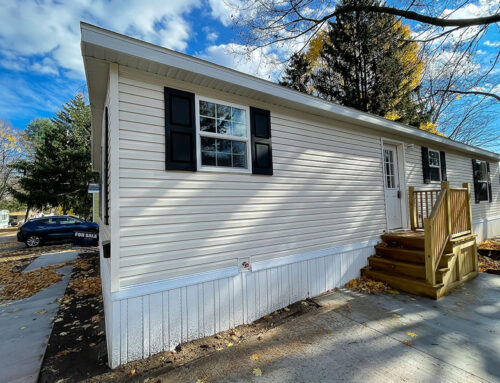Raul recently became interested in expanding his real estate investing business by moving into the New York market. As he looked around, he became curious about whether New York properties posed any different challenges than what he had been buying south of here. So I introduced him to Bill McKenna, a Development Agent for HomeVestors®. Bill has a lot of experience in the region and has seen many of the bumps in the road that less experienced investors miss. He had a wealth of knowledge to share about what to look out for when deciding what makes a great investment opportunity in New York.
All three of us sat down for coffee the other week to “talk shop,” as they say. With all of his real estate investment and mentoring experience, Bill knows the New York market inside and out. So, it goes without saying that Raul hung onto every word.
The Key to Identifying a Solid Investment House in New York
New York real estate tends to be pricier than other markets across the nation, according to Bill, and the high property taxes add to it. That’s why it’s critical to know what you are getting into before making an offer on an investment house. Many of the properties available may have potentially expensive issues that need to be addressed before resale. If you don’t remediate the issues, you may not be able to sell the house. But making the necessary repairs will cut into your returns—unless you plan for them ahead of time.
“We have a lot of late-1800s homes in the area and building codes have dramatically changed since they were built,” Bill told us. “We find a lot of balloon construction or knob and tube wiring. Those are things that are readily identified, but there are others that we call “The Big Three.”
Let me share the three “biggies” that Bill identified:
1. Buried oil tanks.
Many homeowners are unaware that there is an old oil tank buried on their property. The house may have been converted to another fuel source years ago, but sometimes you can find telltale signs like capped pipes in the basement. A home inspector can be your best friend in uncovering these details.
“The steel will corrode over the years and then the leaking starts,” explained Bill. “Remediation can cost tens of thousands of dollars. Understanding the condition of the tank prior to buying the house is important.”
It turns out, if you don’t remediate or remove an old oil tank, you are going to have a
harder time finding a buyer for your investment property. Some banks will not approve a
mortgage and some insurance companies will not cover a house unless it is removed.
2. Septic systems.
People often think to make sure the toilet flushes and the sinks drain, but the septic system is often out of sight, out of mind. But if it hasn’t been maintained properly, replacing it can run you $13,000-$39,000 in the New York and New Jersey region.
“When you get out of the larger, more densely populated areas, most of the houses have
septic systems,” Bill shared. If you are looking at an investment house with a septic system, even paying up to $600 for a pit test may be worth it.
3. Well water.
The state of New York has more than 800,000 private wells, so real estate investors come across the issue of testing for drinkability and flow fairly often. Flow, or the gallons per minute that a well produces, is especially a concern if you intend to market the house to larger-than-average families or if the property has a large lawn and landscaping. If the well water is not potable or is not sufficient, you may have to drill a new well to the tune of several thousand dollars.
Any one of these problems is not necessarily a deal-breaker when you look at a potential investment house, but you definitely need to be aware of them and plan your strategy accordingly. You’ll want to make sure these big-ticket repair costs are included when you estimate the returns from the after repair value.
Valuing an Investment House
While New York real estate investors have a variety of methods for evaluating a potential deal, when it comes to getting the numbers right on an investment property, Bill recommends HomeVestors’® tools and proprietary software, ValueChek™. The software is easy to use and enables anyone to value a house that needs rehabbing, even if they don’t have experience. Unlike other solutions, ValueChek™also lets you adjust costs according to New York’s local market. With all this information at your fingertips, it can help you make the seller an offer with confidence that the investment holds good potential.
If you would like to add some more certainty to your investment strategy, Bill and other New York Development Agents like him are always happy to chat. Reach out to one of them today.
Each franchise office is independently owned and operated.
Contact
"*" indicates required fields





